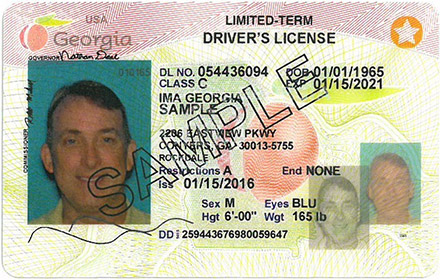
GA House Public Safety Committee hearing on HB 1105, (Friday) Feb. 16, 2004
Transcript by Rev.com My cost, $24.00 and two hours of my time – not counting attendance at the hearing.
Committee chair:
… want to speak, uh-
Terry Norris:
Sure.
Committee chair:
… to this bill. So, uh, I know that, uh, Terry Norris back there wants to speak to the bill.
Terry Norris:
Sure.
Committee chair:
I’m sure Mr. D.A. King wants to speak to the bill, so. And anyone else wish to speak to the bill today? Okay. D.A., if you’d like to go first, come up to the podium, please.
D.A. King:
I’ll let Terry go first.
Committee chair:
I think your hair might be a little longer up here, so we’ll let you-
D.A. King:
(laughs).
Committee chair:
[inaudible 00:00:37].
Speaker 4:
Mr. Chairman, I have a pass-out. Is that okay?
Committee chair:
Certainly. Mr. King, I certainly appreciate you being here. You’re always welcome to testify to this committee. We look forward to having, hearing what you have to say. Um, but I wanna remind you that it’s 11 o’clock on Friday, and-
D.A. King:
(laughs).
Committee chair:
… everybody’s been working hard this week, and we wanna get home, and-
D.A. King:
I’m, I’m acquainted with the, with the concept.
Committee chair:
So, thank you Chairman.
D.A. King:
Thank you. , I’m D.A. King, I’m President of the Dustin Inman Society. I’ve been on this campus since, for a very long time. I would like to say I had hair when I first got here, but I didn’t. This is my 19th session. I was here when we drafted this original law in 2006. I helped work on it in 2000-, I think, and nine. And again, in 2011. When it was drafted, the goal was to create a plan B for the 287-G program. I hope everyone knows what that is, but the whole goal here when we originally constructed the law was to simply put in place a system by which criminal aliens could be detected and reported to the federal authorities.
Uh, I don’t know what’s been presented so far, but I can tell you having been here, that it never occurred to us that there would need to be penalty involved, because it didn’t occur to us that the jailers would not comply with the law. So I have been doing for several years, open records requests, checking on compliance. And there was a great deal of difficulty in that process, because some jails don’t reply, and some jails simply tell me that, “we don’t have any paperwork or documents that will reflect compliance with this law.”
Now, I am told, and I don’t wanna pretend like I’m an expert on the interior operations of law enforcement. But I am told that there are documents and records that are not allowed to be shared that are, uh, law enforcement sensitive. The most recent case that I have done is, a hit and run perpetrator in Gwinnett County, was put in the Gwinnett County Jail on February the 7th. The charges were hit and run, no license, failure to report an accident. So with a series of open records requests, and I’ve gotten accustomed to doing this, because I’ve been doing it for several years, and I can’t remember how many I’ve done, more than 10 or 15.
The bottom line to me going and finding somebody that may or may not be in the country illegally, or at least being a foreign national. Getting an open records request to get amo-, as much information on that as I could, and then getting an additional arrest report from the arresting agency, and then seeing if the individual is in fact foreign born and would fall under the requirements of the law that you’re trying to change. Um, the final result on this most recent case was, when I asked for any documents or records, electronic or written, that will indicate compliance with 42414, I got back the same reply that I’ve always gotten when I get a reply, and that is, we have no records that are relevant to your request.
There is a system in this bill that will construct the systems so that A, the jailer would be attesting to self-compliance, and there would be a records trail for someone who comes behind me, to actually check on compliance and verify that, that, that the law is being obeyed. And, with the penalties involved, we hope that that will, will eventually happen. I, I wanna be quick. If anybody has any questions, that’s pretty much all I have to say.
Committee chair:
Do you have a question, Representative Evans?
Representative Evans:
Thank you Chairman. Yeah, I’m sorry, can you tell me your name one more time, and organization you’re with, please?
D.A. King:
I’m, I’m sorry, say again?
Representative Evans:
I just wanna know your name and organization. I didn’t, uh, write it down, when you first [inaudible 00:04:57].
D.A. King:
Oh, sorry. I was, I was speaking Friday fast. It’s the Dustin, D-U-S-T-I-N, Inman, I-N-M-A-N, Society. We are a 501-C4, under the IRS rules. We’ve been formed since 2005. We are made up of a variety of Americans, including real legal immigrants, and people of every hue and color. If I may, the Dustin Inman Society is named after a young man from Woodstock, Georgia, who was 16 years old forever, because he was killed when an illegal alien, to whom someone had given a job, benefits and services, crashed into the back of the Inman family car on Father’s Day weekend, the year 2000.
That wreck killed Dustin, put his mom and dad into a coma, his mom for several weeks. And when the parents woke up, they were told their only child was gone. Both of the parents have gone now, as a delayed reaction, and result of the crash I just told you about.
Committee chair:
So any other questions about specific, this bill, Ms. Evans, towards, uh, Mr. King? Uh, Representative Petrie? No?
Representative Petrie:
Yeah, I’m good.
Committee chair:
Okay, all right. Any other questions or comments towards, uh, Mr. King at this time? All right. Thank you very much.
D.A. King:
Thank you Mr. Chairman.
Committee chair:
Sure, appreciate you. We’ll call on our friend, Terry Norris, from the Sheriff’s Association now. Tell us what you don’t like about this bill.
Terry Norris:
How’d you know? No, uh, I am Terry Norris. I’m Executive Director of the Georgia Sheriff’s Association. Um, this is my 42nd year, D.A.. Uh, in some ways, I knew more about the legislative process in 1982, than I do in 2024, but I’m learning. So, uh, I’m not here to oppose the bill. Uh, we agree, uh, through our practice at the Association, our training, and as we had mentioned, uh, and through our, um, office of the Sheriff Accreditation Program, uh, certainly that we agree with current law which requires sheriffs to report to ICE on those illegals arrested.
And before I continue I wanna thank, uh, Representative Petrie. Uh, he, we had several meetings and conversations about the bill. Some of our thoughts did not make it to the bill, and I’ll express those to you today, but I don’t… we, we don’t oppose in any way bringing this bill forth for conversation. So we agree with the fact that we should obey the law, comply with the law. Um, but we disagree in a couple of ways. Uh, criminalizing this, uh, is a little bit of an overstep.
There’s currently in the law, under I think, um, Count 15-16-26, where the governor can empanel a committee of two sheriffs and the Attorney General to look at cases where sheriffs are accused of, um, violating the law, malfeasance, uh, [inaudible 00:08:05], et cetera. And that panel has been used throughout the years. So there is a, a current, uh, ability to look at a sheriff who may not be complying with this or any other law.
The, uh, the second thing is, about the report to Department of Audits. Uh, and I’ll say this, and I don’t mean to offend the State or what the State does in terms of appropriating funds throughout the state. But, the State does not fund jails. Jails are highly expensive. Uh, jails are physically, the jails are owned by the County Governing Authorities. The people that are in jail are under the custody, care, safety of the sheriff. The sheriff has sole custody of those people, and we expect the sheriffs to comply with reporting to ICE, as I have said, as it is in the, in current law.
Um, but, many of you who have been around a little while remember, up until last year I believe it was, the Department of Community Affairs compiled a monthly jail report. That jail report was a simple report. It didn’t go very far. Uh, that was discontinued, and we at the Sheriff’s Association, at the, the instruction of the sheriffs, was to create a more robust reporting of sheriff’s jail activities, and we have done that. It is still evolving. Uh, frankly, it is not, uh, currently part of reporting to ID the people we’re talking about here, but that is in the plans.
So, we wanna go further in our general report. And part of the reason that we want to, is we want you all to know who, or who is in county jails, why are they in there. And frankly, a lot of people in county jails right now, um, are, prior to criminal justice reforms, would’ve been in prisons. So what we, what happens when we put people in county jails? Most of the time, almost extensively, the cost of county jails are bore by the local property tax payers. So when we leave people in county jails that might, should be in the state prison system, we’re causing our local property taxpayers to pay the costs of mental health, drugs, all sorts of things.
So I, I say all that, I know I digressed a little bit there. But I say all that to let you know that we are very proud of the product we’re developing on jail reports, and that jail report is done honestly, to let y’all know what’s going on. So there is absolutely, in a sheriff’s opinion, no reason to expect them to report to audit, Department of Audits, or anyone else in the state on this matter.
A footnote to that also is this. They are, they’re pretty compliant with us, with reporting. We’re asking them to report all sorts of things, mental health, transports, who’s in jail with mental health issues, et cetera. So, I urge you to consider our offer to uh, make this report even more effective, and um, informative for everybody, before we start talking about pushing some sort of report of jail data to, to the State. And that’s really all. We’re not trying to be a, uh, uh, in opposition of the bill. But those are the matters that we have concerns with.
Committee chair:
Any questions for, uh, Mr. Norris? I have one question, uh, but we’ll take, um, Representative Cummings, first.
Representative Cummings:
Um, thank you Chair. I have one question. If a sheriff is found, um, guilty of a misdemeanor of a higher aggravated nature, the way it’s described in this bill, how would that impact his job, or his career?
Terry Norris:
That is not cause for immediate, uh, vacancy of the office. In other words, he, he could be suspended, uh, and he could be suspended under the provision that I said, well, I mentioned a while ago. And that was the two, um, sheriffs and the Attorney General. So if there was a, a charge of a misdemeanor, and there was a conviction of a misdemeanor, then that panel could, uh… and there would be obviously a probated sentence or something of that nature. But the, the governor could still empanel the two sheriffs and the AG to look at that conviction or that case, and determine where there was a suspension. And the sus-, the suspension is 60 days up to 90 days under current law.
Representative Cummings:
Okay, thank you.
Terry Norris:
Yes ma’am.
Committee chair:
All right, Mr. Norris. Let me ask you this question. We kind of talked about this offline a little bit. You, you may agree with this or may not. But if you removed that penalty of, of being a misdemeanor, and maybe added that, uh, it was a violation of oath of office, not to comply, would that be amenable to sheriff’s office, Sheriff’s Association?
Terry Norris:
I, I think much more so, and frankly, with, it’s a good point, because with election season coming up, it really affects their concerns about being re-elected. So I would say so, yes sir.
Committee chair:
So that might be something we could take into consideration to maybe, uh, remove some of the heartburn that you have, where that, uh, that proportion of a misdemeanor-
Terry Norris:
Yes, that would be.
Committee chair:
… is removed.
Terry Norris:
When we were already talking about this. We’re pleased to continue to work with our friend, Representative Petrie.
Representative Petrie:
Representative, if I may. So, uh, I actually brought that up, and discussed that as I went through a multitude of options. I had a little bit of a difficult time [inaudible 00:13:49] council understanding how it would, um, adequately impact what we’re trying to do. But, I do wanna make it clear, we did discuss that, and, and um, Mr. Norris has been most helpful throughout all of these conversations from day one. A year ago we started on this, and he’s been very forthright with me in acknowledging that I think in one conversation, we had, we know that 89 sheriffs out of 159 acknowledge, that’s just one particular point in time, that they were doing this.
But we’ve got 159 sheriffs in the state.
Committee chair:
Right.
Representative Petrie:
So, we, we… I think we, we understand that a lot of sheriffs, but not all for bad reasons, but, that are not doing this. We need to compel them to do that, and yes, to… if that’s what we’re trying to do here. And so the reason we put the misdemeanor behind aggravated nature was to make sure that we do this. I wanna read, uh, I wanna read something Mr. Chairman, with your permission.
Committee chair:
Please, by all means.
Representative Petrie:
This is what I’m trying… I wanna make sure everyone here is, is clear on what I’m trying to do. This is a quote, um, from the Gwinnett County Sheriff, uh, Keybo Taylor I think, on January 1 of 2021. Quote, “what we will not be doing is notifying ICE of anybody’s immigration status in the jail or any of our facilities.” So, again, that’s uh, I mean… you know, so we need to either find a way to require, if nobody else, our sheriffs to follow the law. Or, we need to… or, or we can just, as a body, we can take up repealing the law. Maybe we should say, “hey, sheriffs shouldn’t have to do this.”
But it seems to me, we should do one or the other. So uh, but Mr. Norris has been most helpful, and um, we, we need to find a way to solve the problem. He has been very helpful from day one, in having these conversations. I’ve brought up a multitude of ideas, and that was one of them.
Committee chair:
Representative, Chairman Taylor there, yeah.
Representative Chairman Taylor:
Thank you, Mr. Chairman. I think all, all of us, um, have constituents that are very concerned about this particular issue. Um, there is a big issue and problem when people whose job it is to enforce a law, if we don’t have the rules follow, it permeates through our whole society. And that’s what’s happening. This is a leadership position that is coming right out and, I’m not gonna obey the law. And I think that’s our job, to see that that doesn’t happen. We, that’s what we’re supposed to be doing, and address those issues. Um, it, it wouldn’t matter what the others issues are if we, if a DUI? He has to follow the rules just like anything else.
And this is an issue right now that is of concern to everybody. If the law says you have to arrest everybody that’s drunk or whatever the law is, he’s supposed to do it, and it’s the same thing. You’re right, either take it off the books, so don’t have any law, or else, follow the law. We’re teaching young people, don’t follow the law, when we do things like that, thank you.
Committee chair:
Absolutely. Very, very valid points there. Uh, let’s see. Number 16? Representative Cummings, do you have another question?
Representative Cummings:
Yeah, thank you. I just want to know, is there currently a federal penalty if the sheriff doesn’t submit the report? Is there like, a withholding of funds or something like that?
Representative Petrie:
No, representative. Not that I’m aware of. Um, there’s not a federal penalty. And, and again, we’re, so we’re trying to deal with a penalty for a state law. The feds certainly want us to report. They use, and I know, um, uh, the Chairman over here would re-… the LESC, this, uh, that all law enforcement use the, the reporting as I understand, from talking to my sheriff is, is, is very simple. My sheriff who by the way made it very clear to me, we do this, it’s easy. No-… he actually (laughs), my sheriff reviewed the bill and said, I understand it.
So um, I don’t want to be just intentionally punitive. All, I… the goal is very simple. If we have the law, let’s see that sheriffs are doing it. If, if they… I, I… how do we compel them to do that? And if we don’t want that, then let’s just, you know, then let’s, let’s somebody drop a bill to eliminate the requirement. But that’s a good question.
Committee chair:
Yeah, I think, I think that there is… as the Chairman of the Committee, and following you, uh, Chairman Petrie, I know you, you’re very well versed, uh, on uh, immigration and, and those uh, this issue. And, and it’s becoming more of an issue, and I think the constituency around this state, regardless of where you live. It’s an issue in just about every zip code, uh, throughout the state as you pointed out several times. We have more illegal aliens here in our state than in the State of Arizona.
Representative Petrie:
That is correct.
Committee chair:
And uh, just having access to this information I think is vitally important to the public safety of this state. And um, Mr. Norris, I wanted to ask one more question of you. This is not a burden that’s gonna bog down sheriff’s offices across this state, to provide this information, and it’s not gonna be an undue burden that, that’s gonna make it difficult for a sheriff to perform their duties. It’s just simply a, a clerical type procedure. Is that correct?
Terry Norris:
To, to report, I think the bill goes a little bit further, talks about reporting jail population-
Committee chair:
Right.
Terry Norris:
… and um, we struggle a little bit. To an-, the short answer is, no. Not too much. The longer answer is, each jail has an information or a, a data management system. A software system that deals with that jail population, and there are a number of companies that provide that. So, in doing our jail report, which is, will be much more comprehensive than what we’re talking about here, even to do that, we’ve had to stop and get these, um, this data integrated, so that it can be submitted to us.
So I, I… for the most part, I’d say no, but it could be an issue. Dealing, if you’re talking about the Department of Audits, and again that is, is not something that we wanna see happen, uh, we think we can do it better through us. And again, we wanna share that, but I think it would be a little bit of a, a challenge to go within. Unless you’re talking about just a printed piece of paper, this is how many people we had this month in there. We could probably give you that pretty easily.
Committee chair:
Ms. Evans, did you have another question? Representative Evans, I’m sorry.
Representative Evans:
Thank you Mr. Chairman, yes, thank you. Um, and uh, I’m so glad we had these folks here today. I wonder, did the Project South people know about this committee hearing this afternoon? The people who brought us this letter that was distributed? Did they know about the committee hearing this afternoon?
Committee chair:
Which, which letter are you referring to ma’am? I’m sorry, I can’t see that. Project South?
Representative Evans:
This is… it was a, there’s a group who I was handed a letter by Abby, that says, um-
Committee chair:
I’m not, I’m sorry.
Representative Evans:
… so I just wondered if they knew about this hearing, so they could come testify to us?
Committee chair:
I, I, I’m not certain.
Representative Evans:
Okay.
Committee chair:
I can’t speak to that. All, all meetings, all meetings are public.
Representative Evans:
All right, okay.
Committee chair:
Posted, and this, this was on the agenda for the last couple of days.
Representative Evans:
Okay, thank you, Mr. Chairman. So I do have some questions since they’re not here, just that they pointed out, if I’d like to ask the Chairman.
Committee chair:
Go right ahead.
Representative Evans:
Would that be appropriate?
Committee chair:
Sure.
Representative Evans:
Okay, thank you. Um, so in this letter, they as-, they, uh, point out that, uh, this code session, [inaudible 00:21:01] mandates jails to publish a public report about immigrants. And they, they were pointing out that many times people in jail are just waiting in pre-te-, trial detention. And so, uh, uh, the question is, is does this also target individuals, people who have just merely been booked, and have not actually been convicted of anything? So, would that create a ske-… potentially a skewed number in the report? That was-
Representative Petrie:
Okay. So um, so there’s two… there’s two… Section 2 is about the st-, state prisons, and the corrections. Is that what they’re speaking to?
Representative Evans:
This is, they said Section 42-4-14.1.
Representative Petrie:
Okay, that’s under, okay, that’s under this measure. So that’s current law.
Representative Evans:
Mm-hmm.
Representative Petrie:
So, so um, what they’re speaking to is already current law. So the law already requires that, that which they’re asking. This, this, this really is about whether indeed the sheriffs are reporting that information to ICE, but the current law already requires that. And so, to that point, I don’t know, uh, if, if someone is um, it says here, if you’ll look at, uh-
Representative Evans:
What line there?
Representative Petrie:
… line 38. It says there’s a, you know, a reasonable effort shall be made to, uh, determine the nationality of the person so confined. Um, and it goes on to, in, in, in line 33 you see a definition of illegal alien. So I mean, it, this… that’s already, um, and, and then of course, what they do, you see on line 43 and on down, and talks about how, uh, by the way, all over this country, law enforcement reports to ICE. It’s through, um, the Law Enforcement Support Center, and that’s what I was speaking, uh, earlier, um, about. Our Chairman that was a long time member of Georgia State Patrol, uh, they use that for a multitude of things.
But that’s how they report this to the, to ICE. And so that’s already in the law, so I don’t know how to answer that beyond that.
Representative Evans:
Okay. Yep, so but it… so it would just have, it would have people who… anyone that’s in jail. So, ba-, basically you’re saying, so it would include people that have been accused of a crime but not convicted? ’cause that’s a lot of our jail population, right? So-
Representative Petrie:
Yeah, um, and that might be better for Terry to answer. Um-
Terry Norris:
Yes ma’am.
Representative Petrie:
Terry, go into that?
Terry Norris:
This, this, this is anybody that’s arrested.
Representative Evans:
Right.
Terry Norris:
Um, there’s a, in, in place, in a jail setting-
Representative Evans:
Mm-hmm.
Terry Norris:
… there is a criminal history record check, based on a fingerprint. That request goes through the Georgia Crime Information Center.
Representative Evans:
Mm-hmm.
Terry Norris:
They go through the federal agencies, and it comes back to us, that person is either here illegally or not. There’s actually a list of a few things that it, uh, checks off. So, yes, in the case of the sheriffs, the, certainly. These people are being, um, their records are being checked. Their, uh, status is being checked prior to any sort of conviction. Of course that’s the case.
Representative Evans:
Yeah.
Terry Norris:
And, um, jails are created to hold people who are awaiting trial.
Representative Evans:
Yes.
Terry Norris:
Unfortunately we do have people in jail because of criminal justice reform and other measures that stay there. Uh, and that was the point I was making a while ago.
Representative Evans:
Thank you.
Terry Norris:
Right, that’s all.
Representative Petrie:
And thank you Terry. And so, and, and again, the, the, the purpose, uh, is that if someone is here illegally, that the feds have an opportunity to see that. There may be something that alarms them. It could be a, um, an even bigger public ser-, uh, safety threat, or even a homeland security threat. And this is the reason that this is encouraged by, uh, by the federal agency, uh, of all states.
Committee chair:
I would encourage, uh, Representative Evans, if you have, I think, uh… Mr. D.A. King in the audience could make, uh, could help you with, with some of those questions that you have there, uh, about that organization and kind of repeat some of that, uh, information. And you can see him on, after the meeting off, offline if you don’t mind. Uh, we’ll go rep-, uh, recognize, uh, Chairman Taylor for another comment, then we’ll go and-
Representative Chairman Taylor:
Yeah, thank you.
Committee chair:
… wrap this up for today.
Representative Chairman Taylor:
Yeah, this is, um, just wrapping it up. Uh, anybody get, gets in jail is counted just like an occupancy. They’re counting it, just finding out who’s in there.
Committee chair:
Yeah.
Representative Chairman Taylor:
Um, and then further in the same letter, they talk about the officers. They don’t need training in immigration, that’s not what their job is. They’ve arrested them because they committed some type, or they’re suspected of it. And at that point, they have to be held, like anybody else. It doesn’t… they’re not trying to pick on one group. It’s just, if you’ve committed a crime, or have been identified as perhaps having one, you’ve gotta be accounted for. And I, I don’t, I don’t get this. I don’t, I don’t agree with what the things that, that they’ve said. Um, it, it just isn’t.
And they’re not… the officers, they are not making any determination-
Committee chair:
No.
Representative Chairman Taylor:
… on their eligibility at all. Like you said, it comes back on a fingerprint, so-
Committee chair:
That’s correct.
Representative Chairman Taylor:
… this is-
Representative Petrie:
And Mr. Chairman, I’d love to get a copy of the letter, ’cause I, I can’t respond to it, ’cause I haven’t seen it.
Committee chair:
Sure, sure.
Representative Petrie:
I, I’ll get it later. I don’t need it now.
Committee chair:
We’ll get it, okay.
Terry Norris:
Mr. Chairman, just to kind of close my piece out, of it out. On my point, remember. This, this is a check for status, is what this is. These people, whoever they are, have been charged with whatever offense. Most of the time, I think it’s a misdemeanor. A lot of the times, it’s a bad felony. So we’re checking for the status of this person, and that status, once we get the status, if it is one of those things, one of it being in the country illegally, then that notice to ICE goes. We’ve got Terry, he’s not here illegally, and he’s in our jail, and he’s been charged with speeding, ’cause I was a, I was a super speeder.
So ICE then determines whether they’re going to place a detainer on Terry. And, a detainer is different than a warrant. A detainer doesn’t always mean that ICE-
Committee chair:
That’s right.
Terry Norris:
… will ever pick that person up. So our rule of thumb is, we treat these folks like the Chairlady said, like anyone else that’s get, gets arrested. They’re entitled to bond, or to bond out of jail. And uh, with a warrant, 24 hours. Without a warrant, 48 hours. So if ICE hadn’t, hadn’t said, we’re coming to get this person, then they’re, they’re making bond like anybody else does. So, if that’s any clarity.
Committee chair:
Very good, thank you. I’ll let you have the last word, Chairman Petrie, before we close up.
Representative Petrie:
Yes sir, well thank you Mr. Chairman. I just wanna emphasize, as uh, Mr. Norris sits down, how helpful he, uh, indeed again, he has been. Listen, our sheriffs are some of our most respected members of, of all of our communities. And uh, but there are times in certain situations where uh, we may have some, uh, we know we have some that are, uh, refusing to follow current law. I just want us to find a solution to that, and that’s my goal here, and I appreciate you having the hearing, Mr. Chairman. I appreciate Mr. King, I appreciate Mr. Norris, uh, speaking as well, to provide a, a little more advocation on this topic.
Committee chair:
To the members of the committee, thank you so much for staying, hanging around here for a few moments after we adjourned on Friday. I certainly appreciate your willingness to be here, to help vet this legislation. Uh, there being no further business before this committee, we stand adjourned.













































You must be logged in to post a comment.